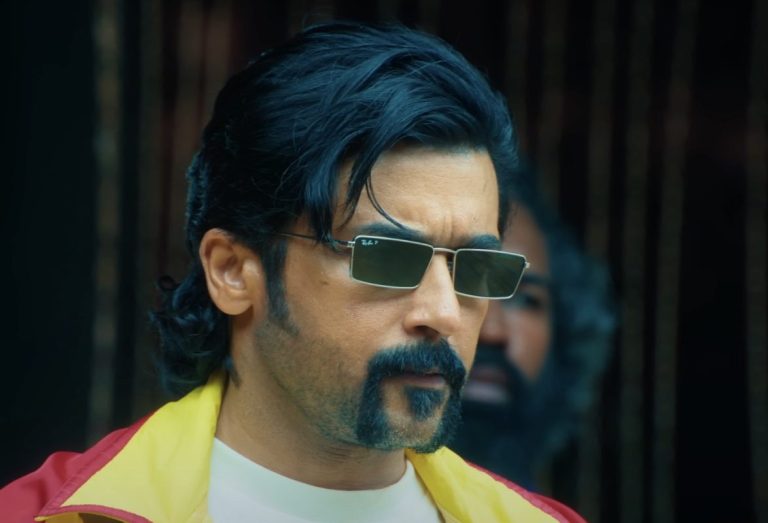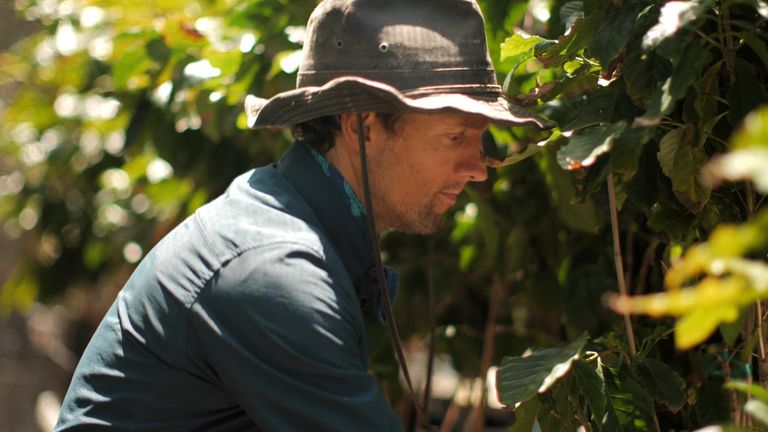Waco (2018) Recap & Ending Explained: The image of tanks tearing down Branch Davidians religious sect’s compound, situated outside of Waco, Texas, on April 19, 1993, is one of the many tragic moments in modern history, which disputes a nation’s prideful claim that it laid the foundations of modern democracy. The Branch Davidians are a Seventh-Day Adventist Reform Movement (in other words, a religious sect that believes in the imminent second coming of Jesus Christ), which was based in the Mount Carmel Complex, Waco, from 1955. In the late 1980s, a charismatic young man named David Koresh (born Vernon Howell), who claimed the ‘gift of prophecy,’ ascended to the Branch Davidian leadership, using internecine conflicts within the sect, and took control over the Mount Carmel Center.
Koresh’s belief in the doctrine of the House of David made him take up many wives; among them, at least one was as young as twelve. Apart from polygamy and statutory rape charges, Koresh also faced allegations of child physical and sexual abuse. Many surviving Branch Davidians of Mt. Carmel Center attest that he is a polygamist and most undoubtedly guilty of statutory rape.
Nevertheless, David Koresh wasn’t convicted on any of these charges. At the same time, these accusations don’t have anything to do with the Bureau of Alcohol, Tobacco, and Firearms (ATF) decision to deliver a search warrant and storm the Branch Davidian compound on February 28, 1993. The resulting standoff led to a 51-day siege and caused the deaths of 82 Branch Davidians (28 of them were children) and four federal agents.
Though the American government was cleared of any wrongdoing and Federal officials were cleared of liability in the deaths of Davidians, the episode became a perfect example of the militarized nature of American democracy (which only took unprecedented form after 9/11). William Gazecki’s 1997 documentary Waco: Rules of Engagement brought up important questions about the conduct of the FBI and ATF at the Branch Davidian compound. Recently, Netflix released a docu-series on the subject titled Waco: American Apocalypse (2023).
Recommended Read: 10 Must-See Documentaries about Cults
In 2018, Showtime (Paramount Network) offered a much-anticipated dramatic interpretation of the infamous 51-day siege, simply titled Waco. Developed by John Erick Dowdle and Drew Dowdle, the six-part miniseries was based on two books: one was written by surviving Davidian member David Thibodeau (co-authored by novelist Leon Whiteson), and FBI hostage negotiator, Gary Noesner, wrote the other book. Both ‘A Place Called Waco’ and ‘Stalling for Time: My Life as an FBI Hostage Negotiator’ provides us with the rightful mixture of different vantage points, where both authors closely observed the gradual escalation of the conflict.
Showtime has also made a sequel to the 2018 limited series, which is titled Waco: The Aftermath (2023). Now let’s take a detailed look at the spoiler-filled dramatic reconstruction of the disturbing 1993 incident in Dowdles’ mini-series Waco (2018).
Waco (2018) Limited Series Recap
A Sense of Foreboding
Waco episode 1, ‘Visions and Omens’ opens with a prologue, which shows David Koresh (Taylor Kitsch) forebodingly looking at the gathering storm – the whirring of helicopter blades and truckloads of armed men – and preparing himself to surrender. David opens the door and comes out with his hands up, but a gunshot cuts the frame to black. The action then shifts back to nine months earlier, with David being awakened by his 7-year-old son Cyrus for their daily jogging routine. The father and son run around the expansive premises of Mount Carmel Center. Feeling out of breath after the run, David enters the Chapel, addressing his gathered flock of followers, and captivatingly sermonizes about the ‘Joy’ they deeply feel in their tightly-knit community.
“Joy doesn’t come from having something or being something. It comes from becoming. Becoming more than you are today,” says David before jumping into their daily Bible study. The easy-going charisma of David Koresh is firmly established in this opening scene. However, by the end of this episode, we get a look into the other aspects of his beliefs and personality, which emphasizes his status as a cult leader with a God complex.
David’s right-hand man Steve Schneider (Paul Sparks), a former professor of theology, receives news from his wife, Judy (Andrea Riseborough), about her pregnancy. This visibly upsets Steve. It’s later revealed that Judy is one of David’s many wives, and the child is his. We see David and a few of his followers perform as a band at the local bar. Since their drummer is absent, David asks a young drummer named David Thibodeau (Rory Culkin) to jam with them for the gig. After the gig, David talks with Thibodeau and persuasively makes the youngster stay at their compound for a night. Though Thibodeau isn’t into religion, he looks like a man in search of a community. Moreover, on the night of his stay, he meets a beautiful young woman named Michele (Julia Garner).
In the same month, David Koresh was preaching about ‘joy’, Federal Agents surveilling a property set off a firefight with the Weaver family living in Ruby Ridge in Boundary County, Idaho. A US Marshall and the mother and 14-year-old son of the Weaver family were the casualties at the end of the 11-day siege. The tragic incident showcased the FBI’s nature to de-escalate a conflict by using too much deadly force. Though the patriarch of the Weaver family was persuaded to end the standoff (and save his three children) after FBI hostage negotiator Gary Noesner’s (Michael Shannon) clever ploy, Mitch Decker (Shea Wingham) – the trigger-happy head of Hostage Rescue Team (HRT) – unnecessarily escalates the conflicts on both sides.
A frustrated Gary learns that despite clear signs of wrongdoing at Ruby Ridge, HRT is awarded a $10 million increase in their budget. The FBI head also believes that the world has changed and only a show of force can work with their alleged enemies. Six months after Ruby Ridge, Gary files a complaint against the FBI’s tactical lead, Mitch, despite the full knowledge that it will make him infamous among the agency people. The FBI’s attitude and Gary’s sense of foreboding set up the tone for what comes next.
Soon, the Bureau of Alcohol, Tobacco, and Firearms (ATF) in Texas receives a tip about Branch Davidians’ large-scale procurement of firearms, especially machine guns and hand grenades. The sect members were also accused of violating federal gun laws by modifying semi-automatic to automatic weapons. The series shows that in order to score some political points in Congress, the Texas ATF director has haphazardly set up an investigation on the Branch Davidians.
Meanwhile, David Thibodeau, who came to stay for just a night at Mount Carmel Center, is still there in the compound six months later. In a conversation with David, Thibodeau learns about the religious sect’s faith and rules. He speaks of the celibacy of all the men in the group except him (“I’ve assumed the burden of sex for all.” declares David). David believes his children from many wives will be the 24 elders who will sit at the final judgment for all humanity.
The Storm Is Coming
ATF agent Jacob Vazquez (John Leguizamo) disguises himself as a rancher and sets up the surveillance of the Branch Davidian compound from the property across the street. However, David and Steve, after a brief conversation with Jacob, come to the conclusion that he isn’t a rancher. David’s wife, Rachel (Melissa Benoist), and a few other prominent members of the group believe that State Child Services could be after them due to the polygamy charges. While David dismisses that notion, he decides to marry Michele – Rachel’s younger sister and one of David’s wives – to Thibodeau.
A visibly upset Michele reprimands Rachel for forcing her to marry David at the age of 12. Rachel herself married David at the age of 14, and she says that it was her loyalty to God that forced her to share her husband with other women. At the same time, we could feel there’s a power struggle between Rachel and the other women, especially with Judy, who is older and speaks freely with David.
Later, Jacob takes up David’s invitation to visit the compound. His fellow ATF agents give Jacob a picture of the place where the Branch Davidians might have stashed their weapons. Jacob’s attempt to covertly search the compound doesn’t work, as he is brought to the chapel to listen to David’s sermon. Subsequently, Jacob is invited to the wedding of Michele and Thibodeau. Gradually, Jacob forms an opinion that the small religious community doesn’t pose a huge threat to anyone. Despite the far-fetched talks of prophecy and God, he feels they look like any other community of faithful folks.
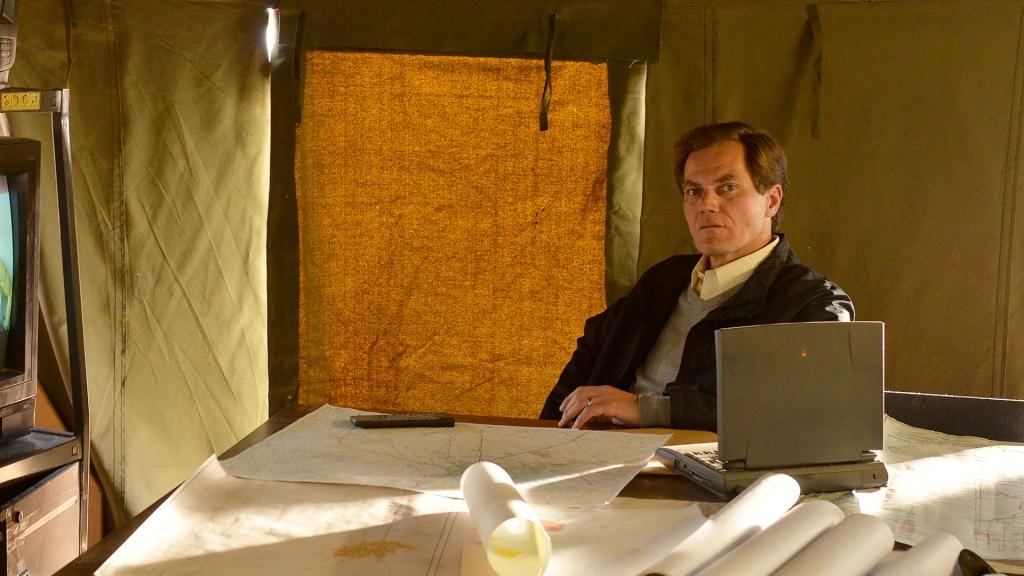
Earlier, in the 2nd episode, ‘The Strangers Across the Street,’ Gary Noesner speaks of the ‘paradox of power.’ He elucidates how “the more force you bring to a situation, the more likely you are to meet a resistance.” Nevertheless, Gary’s uphill task within the FBI continues as the agency spends less and less on training agents in the skill of negotiation. Meanwhile, the ATF head in Texas is all prepared with a search warrant to raid Mount Carmel Center and has even recruited a media rep to boost their story. Unfortunately, Jacob’s cover is blown, and an article in a local newspaper gives David Koresh an idea about the forces gathering outside his compound.
Since the element of surprise is gone, Jacob does his best to abort the impending raid. But the ATF agents in transit surround the premises. A media cameraperson also accompanies the agents to cover the action. But the boys with the toys fumble big time.
A Volley of Bullets and Gallons of Milk
There was much debate over who first started the firing in the initial standoff between ATF and Branch Davidians. Waco’s 3rd episode, ‘Operation Showtime,’ clearly shows that ATF agents in tactical gear first shot the barking dogs in the compound. Then they started raining bullets on the compound, despite having the knowledge that there were women and children inside. David Koresh, who came out with his hands in the air, took a shot to his abdomen, whereas his father-in-law Perry Jones was gravely injured. The Branch Davidians start returning the fire, and a full-blown gun battle between both sides ensues.
Five Branch Davidians and four federal agents were killed in the fight. The ATF agents’ attempt to get into the premises fail. One of the absurd aspects of the ATF raid is that they went in without any communication gear. Therefore, the local sheriff, hearing the news of the ATF raid from David on the phone call, calls the media cameraman to declare a cease-fire to ATF. Four ATF agents were killed in the fire exchange, and seventeen were injured. Five are killed on the Branch Davidians’ side.
Subsequently, the FBI, under the leadership of Tony Prince (Glenn Fleshler), takes over the operations. Negotiator Gary and HRT head Mitch are part of the operations, though Prince mostly sides with Mitch’s ‘show-of-force’ approach.
Nevertheless, the FBI is burdened with the duty of cleaning up ATF’s mess, and Gary is given a chance to establish contact with David. The apparent mission is to make David surrender, give up the weapons, and allow all his people to come out. Initially, David agrees to come out after making his statement, which he asks the FBI to broadcast on national television. Two days after the initial standoff, David releases his message to believers all over the country. But when his message is mocked in the national media, David decides to stand his ground.
Wounded and exhausted, David firmly believes that the federal agents’ presence is a message from God. David withholds the belief that he has the God-given authority to open the Seven Seals, and he interprets the arrival of ATF agents as the opening of the Fifth Seal (focuses on the oppression and martyrdom of true Christians). Despite a threat to their lives, Branch Davidians believe in David’s message, and no one leaves the premise. The shrinking food supply, however, pushes David to send out a few older people and orphaned little kids. While David tells Gary that he will wait till he hears any further message from God, Steve becomes a little restless. Moreover, Gary believes he can use the frayed dynamics between David and Steve to create a difference of opinion that will drive the people out.
When the mothers stop lactating, Gary comes up with a plan to provide them milk, and places bugs inside the crate, which might help Mitch’s tactical unit. In exchange, the FBI demands David and Steve send out a few more children. Despite making that little progress, Mitch cut the power in the compound. In fact, the majority of FBI agents on the field, however, prefer the use of force. They want to prevent another Jonestown (mas-suicide of more than 900 cultists belonging to Jim Jones’ People’s Temple). Despite Gary’s assurances that Davidians aren’t a suicide cult, the men dressed in military gear look forward to seeing some action, even if that means raiding a compound full of women and children.
No Gas Masks for Small Children
More than a week into the siege, Prince addresses the media and ominously mentions that the Branch Davidians are waiting for a sign from God. Gary believes cutting the power off would only strengthen the resolve of the group to stay inside the compound and impedes the progress they have made so far. Gary succeeds in persuading Prince to turn on the electricity. Nevertheless, a few days later, Mitch sends his tanks to clear the wooden perimeters of the compound and trample the cars.
Nearly three weeks into the siege, Mitch Decker gets Prince’s permission to implement psyops techniques to get them out. The FBI blast loud sounds and project special light into the compound in the night while also cutting off the power. Despite continuing the psychological torture for days, the fatigued and starved Branch Davidians don’t give up, and their belief in David perhaps only gets stronger. More than five weeks into the siege, Ron Engleman (Eric Lange), a radio talk host, who consistently disproves the government version of events and supports Davidians’ freedom of speech, finds a simple method to communicate with David Koresh.
As a result, two attorneys arrive at the compound, and they discuss the options to end the stalemate with the FBI. Finally, after six weeks, David agrees to Gary to come out with his followers. But there’s a catch: David wants to finish writing his manuscript on the Seven Seals. He promises it will only take a few days. However, more than a week later, on the 50th day of the siege, Prince and Mitch run out of their patience. They get the green signal from the higher-ups to insert CS gas (aka tear gas) into the compound, using the tanks, and flush out the sect members.
The Attorney General, who approves the decision and takes it up with President, questions whether there are enough gas masks within the compound. Mitch replies, “Nobody makes gas masks that’ll fit children.” But he assures everyone will come out the moment the gas is pumped inside the buildings. Gary protests against the decision but is packed up and sent back home. On the fateful 51st day of the siege, tanks roll into the compound and smashes down sections of the walls to insert the tear gas.
Waco (2018) Ending, Explained: Who Is Responsible for the Death of 76 Branch Davidians?
Contrary to the FBI’s belief, once the tear gas penetrates the building, David only puts his followers at risk by sending the men to the Chapel and the women & children to the bunker in the kitchen. Steve and Thibodeau provide them with gas masks. Meanwhile, Rachel and Cyrus, and a few others move to the school bus that was buried in the ground to serve as another bunker. Just when the FBI wonders why no one has come out, infra-red scans show the heat signs of people gathered in the bunker. Therefore, they decide to use tanks to inject CS gas into the bunker directly. But the tanks cause damage to the walls of the compound, blocking the door to the bunker and making it impossible for the women and children to get out.
The entrance to the bus bunker also caves in, suffocating the remaining survivors. Soon, a fire starts in the compound and slowly engulfs the whole premises. Witnessing all the chaos, David asks Steve to offer him the gift of mercy killing. Afterward, Steve shot himself. Gary Noesner speechlessly watches everything on national television at home, like many other Americans, on April 19, 1993.
Later, the FBI claimed that the Branch Davidians started the fire to commit mass suicide. But common sense says that the profusion of tear gas injected into the compound became potentially flammable. While some arson experts have blamed the sect members for creating the fire, survivors like David Thibodeau denies that narrative and find it yet another attempt by the government and media to dehumanize its victims at Waco. The radio host Ron Engleman lists out the many incidents where the FBI’s massive use of tear gas (dating back to the 1960s Civil Rights protest) has caused a fire.
The epilogue of Waco (2018) shows Gary Noesner and David Thibodeau sharing a wordless gaze as both of them are summoned to address the court. Their vacant expression conveys that the trauma of the event would follow them throughout their lives. Seventy-six Branch Davidians died on the 51st day of the siege, and 25 of them were children.
Final Thoughts
John Erick and Drew Dowdle’s six-part mini-series Waco (2018) is an essential dramatization of the 1993 Waco tragedy. The fear and paranoia of religious sects – addressed as ‘cults’ – intensified after the 1978 Jonestown mass suicide in Guyana. Later, in the mid-1980s, the experimentation of biological and chemical weapons on American soil by members of Rajneeshpuram (covered in the Netflix docu-series Wild Wild Country) garnered the attention of the FBI and the state police. The government and media’s overreaction to Branch Davidians happened in this climate of the shocking upsurge of allegedly dangerous religious sects in America.
Some of the valid criticisms directed against Dowdles’ Waco (2018) include: it sympathizes with David Koresh a little too much and waters down his unstable, irrational behavior, which indefinitely extended the stalemate. Of course, the series focuses a bit more on the increasing militarization of Federal agencies. While that compresses the narrative set inside the compound, Waco offers intriguing insights regarding the paradigm shift within American law enforcement institutions. It raises significant questions about the boundaries of government authority over a nation’s citizens. In a broader sense, the entire Waco tragedy highlights the dangers of religious extremism and the need to communicate better with people whom we label as ‘different.’
What’s Depicted in Waco: The Aftermath (2023)?
Showtime and Dowdles have come together to make a five-part mini-series sequel to Waco (2018), titled Waco: The Aftermath. The first episode is getting its premiere on April 16th. Michael Shannon (Gary), John Leguizamo (Jacob), and Shea Wingham (Mitch) are reprising their roles, while the ensemble cast also includes Giovanni Ribisi and Abbey Lee. The trailer of Waco: The Aftermath reveals that the narrative will dramatize the trial of surviving Branch Davidians. The limited series also covers the growth of home-grown militia movements. It particularly seems to be following the life of Timothy McVeigh, the domestic terrorist responsible for the Oklahoma City bombing in 1995, which killed 168 people, including 19 children.

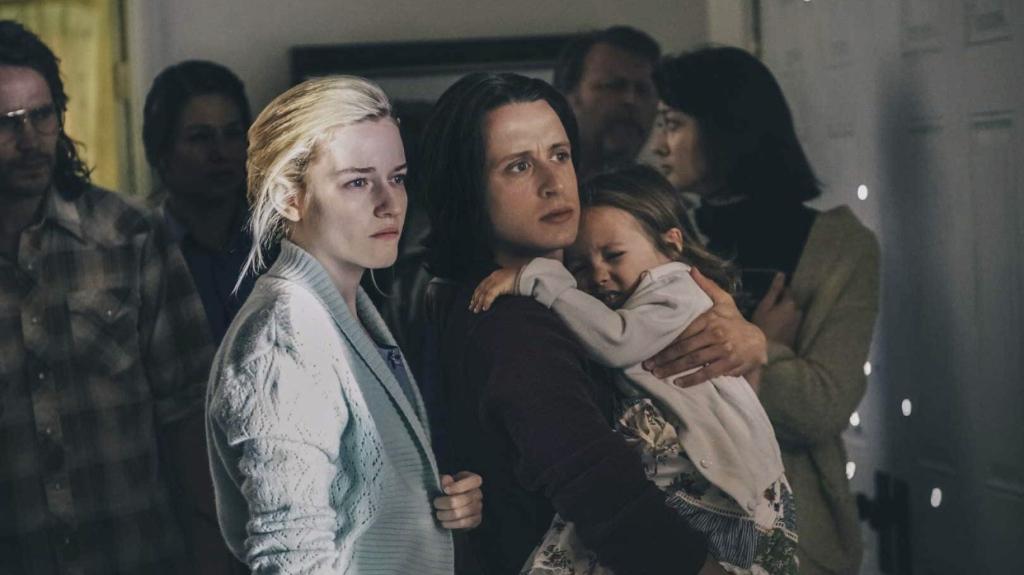


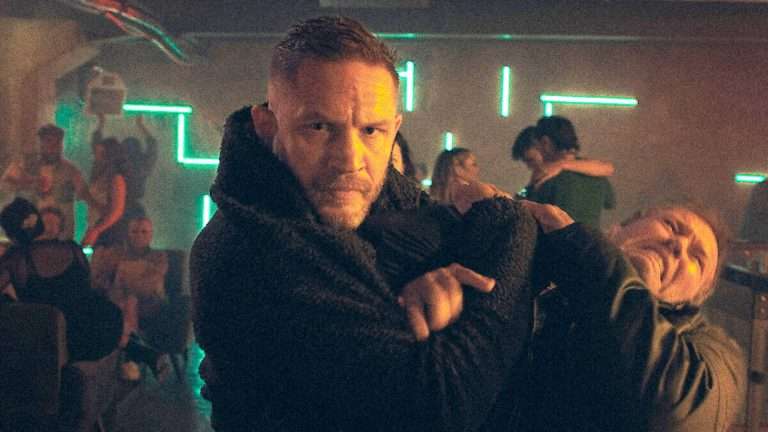
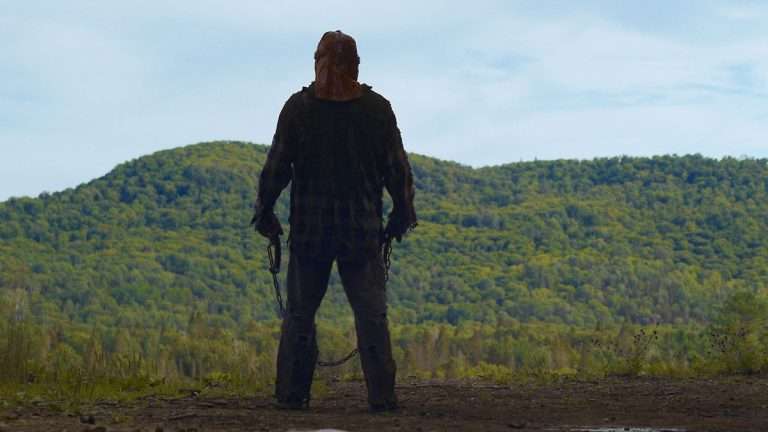
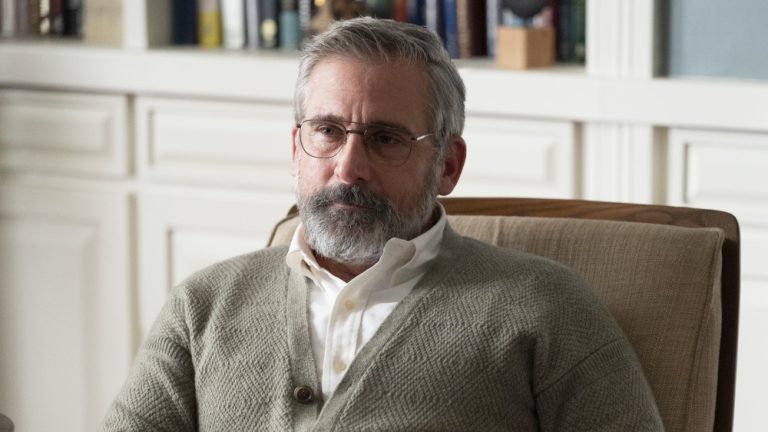
![Kaun Pravin Tambe? [2022] Review: Hard Not to Be Swayed by the Hopefulness of This Well Told Story](https://79468c92.delivery.rocketcdn.me/wp-content/uploads/2022/04/Kaun-Pravin-Tambe--768x427.jpeg)
